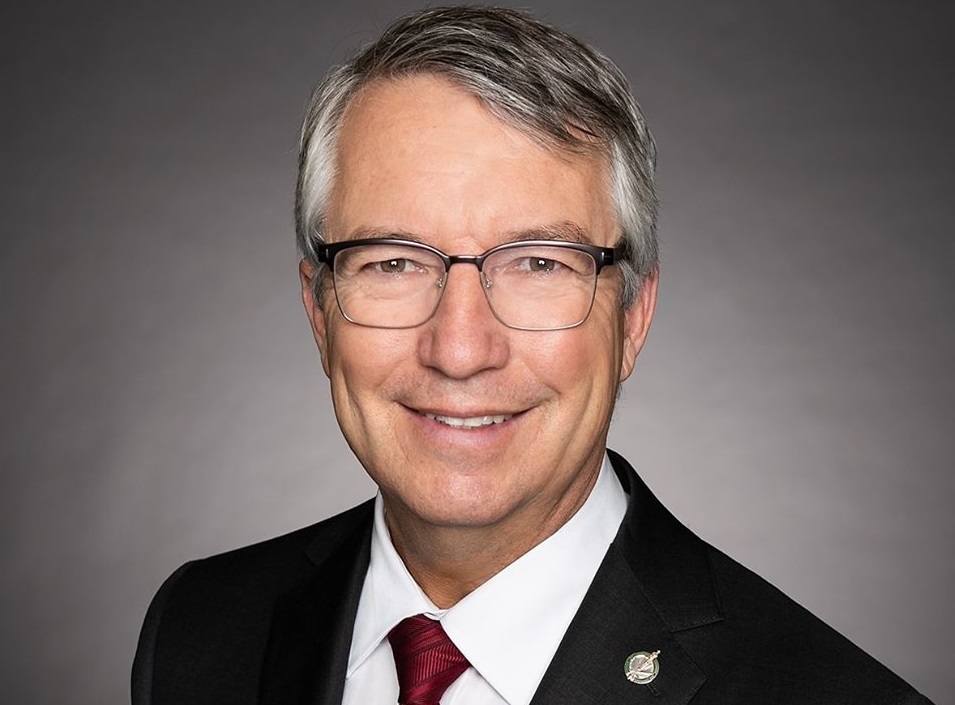In the final few days before we enter another decade, Guelph’s Minister of Parliament Lloyd Longfield is looking back on the last 10 years but also looking ahead to the next 10.

Longfield has gone from the president of the Guelph Chamber of Commerce to being elected as MP in 2015 under the Liberal Party banner.
Global News sent Longfield some questions about how he views the last decade in Guelph and what he looks forward to in the 2020s. The following are his answers in a Q&A format.
What were you doing in 2010?
I was the president of the Guelph Chamber of Commerce, working as a community partner on economic, social and environmental development with other partners in Guelph.
We had just come out of a recession, so we were working together to build resiliency through a 10-year economic development plan called Prosperity 2020.
Thinking back to that year, how were you hoping things might shape up in Guelph over the decade?
We had identified social, economic and environmental goals for the city.
Through the Community Energy Initiative, we hoped to reduce poverty, attract new businesses and support innovation, and reduce per capita energy use and water use by 50 per cent.
Were you right or wrong? If you were wrong, how so?
There has been good progress and teams that were formed are still working in these areas.
The startup of innovation centres in the past 10 years has supported job growth, business startups and social innovation in Guelph.
Guelph Hydro did excellent work around energy conservation programs with large and small businesses and residences. Alectra is now bringing some additional capacity to look at smart grid development and other technical support around developing energy-related solutions.
We had hoped to see district energy, and combined heat and power implemented but need to revisit the business cases, investigating support from other orders of government and investments by the private business sector.

What is the single biggest change (or name a few) that has happened in Guelph over the past 10 years that has been a game-changer?
Guelph has seen about 25,000 people move to our community, with many seniors coming from the GTA and elsewhere, as well as immigration from other countries.
Guelph is becoming much more diverse culturally, which has added a lot to our community.
The growth of the community is likely the biggest change someone visiting for the first time in 10 years would see. The selection of restaurants, entertainment and languages spoken would surprise someone that knew Guelph in 2009 and before.
What has been your biggest win?
Participating in the startup of innovation centres in Guelph, which was part of the “Prosperity 2020” plan, has been a great win and something that has added some great talent and energy to Guelph.
The recent development of female entrepreneurship and innovation is particularly exciting. Having many women in leadership positions in innovation and business support organizations, in business, in research, in health care, and in all types of business is particularly exciting.
Guelph is emerging as a place where women succeed and provide leadership in many areas. As always there is more to do.
What has been your biggest disappointment or miss? What did you learn from it?
I was hoping to see more progress in environmental and climate change issues.
I have learned we need to work across all levels of government, age groups, and political stripes to focus on action items and measurable results. There have been many successful examples from businesses and community members to provide models for further learning.
As well, in working with the Indigenous communities and working with local and federal agencies I have learned of the many challenges with the boiled water advisories. We have held consultations with Grand Chiefs and water keepers in Guelph and drawn on local support to contribute to the goal of eliminating all long-term boiled water advisories by March 2021.
What was the biggest story of the last decade in Guelph? Why?
The settlement of refugees from Syria that started in 2015 has changed the discussion of inclusion and support of vulnerable people in our community.
The mobilization of the community has highlighted areas we need further development for all vulnerable people including housing, education, literacy, jobs, mental health, and food security.

How has the make-up of Guelph changed over the last decade? How does this drive decisions for you at the federal level?
There are more people living in Guelph, growth of businesses, more retired people in Guelph and more diversity of cultures.
The Federal government shares jurisdiction with the province and through the province with the municipality. The healthcare framework and funding includes mental health and home care to support the range of people living in Guelph.
The Federal government housing strategy, business and innovation support, and environmental and climate change supports (including transit) all need to be coordinated to support Guelph’s growth and development.
What’s your biggest hope for Guelph for 2020-2030?
Guelph is showcasing the first circular food economy in Canada and stands to be a leader in circular economic development over the next decade: rethinking waste going to landfill and instead, developing waste as a resource.
The downtown development of Baker Street provides many opportunities for housing, net-zero energy, and social support as well as some exciting public space development for a next-generation library.
In the next decade, I hope to see the innovation progress continue as we look at the car of the future, integrated health support including mental health and addictions, and accommodation of our growing seniors’ community.
What is the biggest challenge Guelph is facing over the next decade?
We need to address the climate change crisis in a meaningful way, becoming better and integrating vulnerable people, and managing mental health at all stages of development including early childhood through to seniors while at the same time providing economic opportunities for the next economy.





Comments